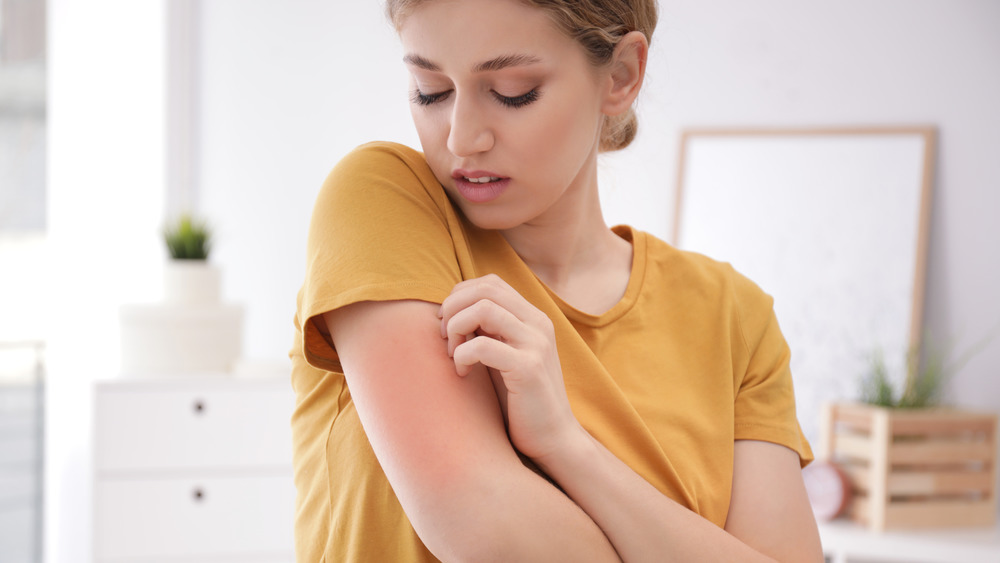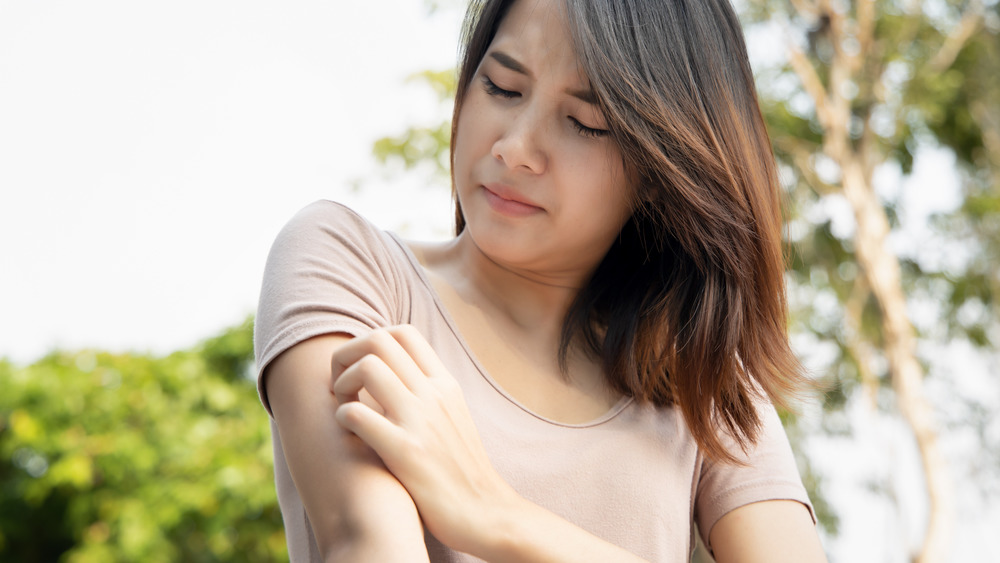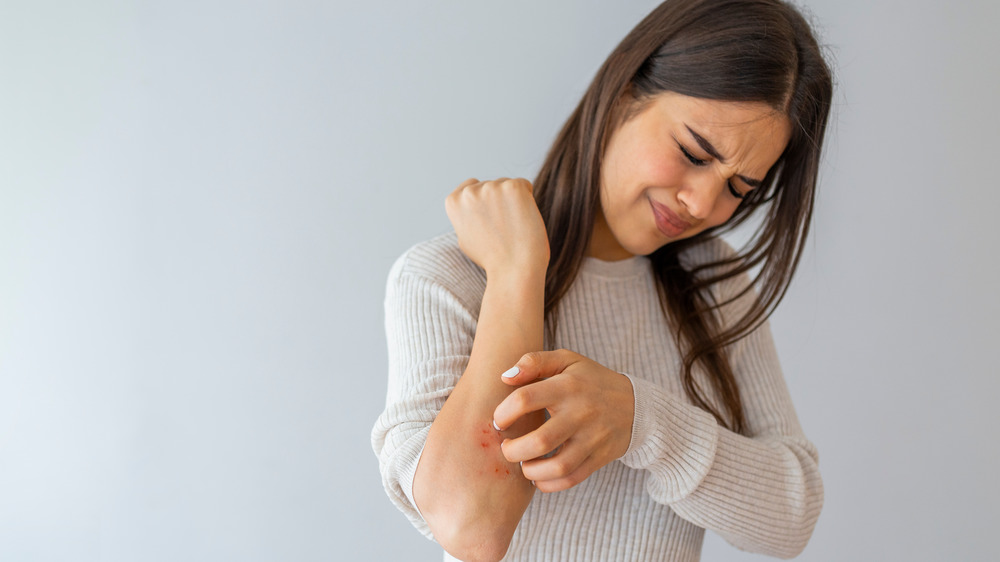What It Really Means When Your Arms Itch
If you can't stop scratching your arms, there are various underlying reasons for the itching that you might never have expected. According to Dr. Adarsh Vijay Mudgil, itching sensations are caused by stimulation of nerve cells in the skin (via Healthline) and can be caused by a wide array of factors, ranging from an allergic reaction to a simple irritation from a new moisturizer. Known by the medical community as pruritus, itchy skin is not just uncomfortable, but may be a sign of a totally different ailment (via the Mayo Clinic). If you can't fight the urge to scratch your arms, read on for all the possible sources of your discomfort — and what to do about it.
One of the top reasons for itchy arms is actually a quick fix: dry skin. Although unexpected, dry skin is most often caused by skin dryness (via the Mayo Clinic) and is apparent through flakey, scaly skin. According to Buoy Health, dry skin is the most common cause of itchy upper arms, particularly in older people, and can be caused by bathing too often, using drying soaps, or using the heater too frequently. Whatever the reason, your best bet is to regularly use a dermatologist-approved, supple moisturizer.
If not experiencing dryness, eczema can also cause itchy arms. Eczema's symptoms include intense itching, scaly rashes, and skin that looks thicker, and scratching usually makes it worse. Buoy Health recommends using a hypoallergenic, thick moisturizer and topical steroid creams to help eczema, plus seeing a dermatologist.
Other reasons your arms are itchy
Apart from skin dryness and eczema, itchy arms can stem from psoriasis, which Buoy Health describes as red, sharp rashes and silver scaliness on the skin. Although it can lead to other serious diseases like psoriatic arthritis, mild psoriasis can be treated with a topical steroid cream, or phototherapy and oral medications prescribed by a dermatologist. As the Mayo Clinic explains, it's also common for itchy arms to be caused by an allergy or irritation, seen through rashes or blistering, and caused by allergens such as fragrances, dyes, cosmetics, medications, or plants. Topical steroids help this, as well as seeing an allergist to get to the bottom of your reaction.
Another more unexpected reason for itchy arms is ringworm, caused by a fungus on the skin, which causes a circular red rash. Highly contagious, it's best to treat it with an over-the-counter antifungal cream. Similarly, insect bites can be the culprit (those camping trips!), and the best thing to do is treat them with a hydrocortisone cream (via WebMD) or taking an antihistamine (via Buoy Health).
Less common causes for itchy arms
Be wary of other possible reasons such as folliculitis, an itchy infection of the hair follicles seen through pus-filled bumps, treated by topical or oral antibiotics. Hives can also be a cause, usually springing out by allergic reactions, or for no reason at all. Intensely itchy, Buoy Health recommends treating hives on arms with an antihistamine. Other suspects? Brachioradial pruritus, caused by a nerve injury in the spine that makes arms feel itchy, which is still widely misunderstood. Apart from seeing a medical professional, many have found luck with topical itch creams to relieve discomfort. Polymorphous light eruption also causes itchy arms, and is a rash caused by sun exposure — try topical steroids or an antihistamine to relieve the itch for this.
Apart from the more common causes for itchy arms, Buoy Health also mentions polycythemia vera, a blood disorder that leads to excess amounts of red blood cells, which can cause itchiness. Dermatomyositis is another less-common cause, and is an autoimmune condition that inflames the muscles, showing through a purple-colored, itchy rash. The Mayo Clinic also mentions liver disease, kidney disease, anemia, diabetes, thyroid problems, multiple sclerosis, shingles, and anxiety as possible causes for itchy arms, which are important to note as well. Whatever the cause, seeing a doctor to help you through is always a good idea, especially if the itching is persistent.



